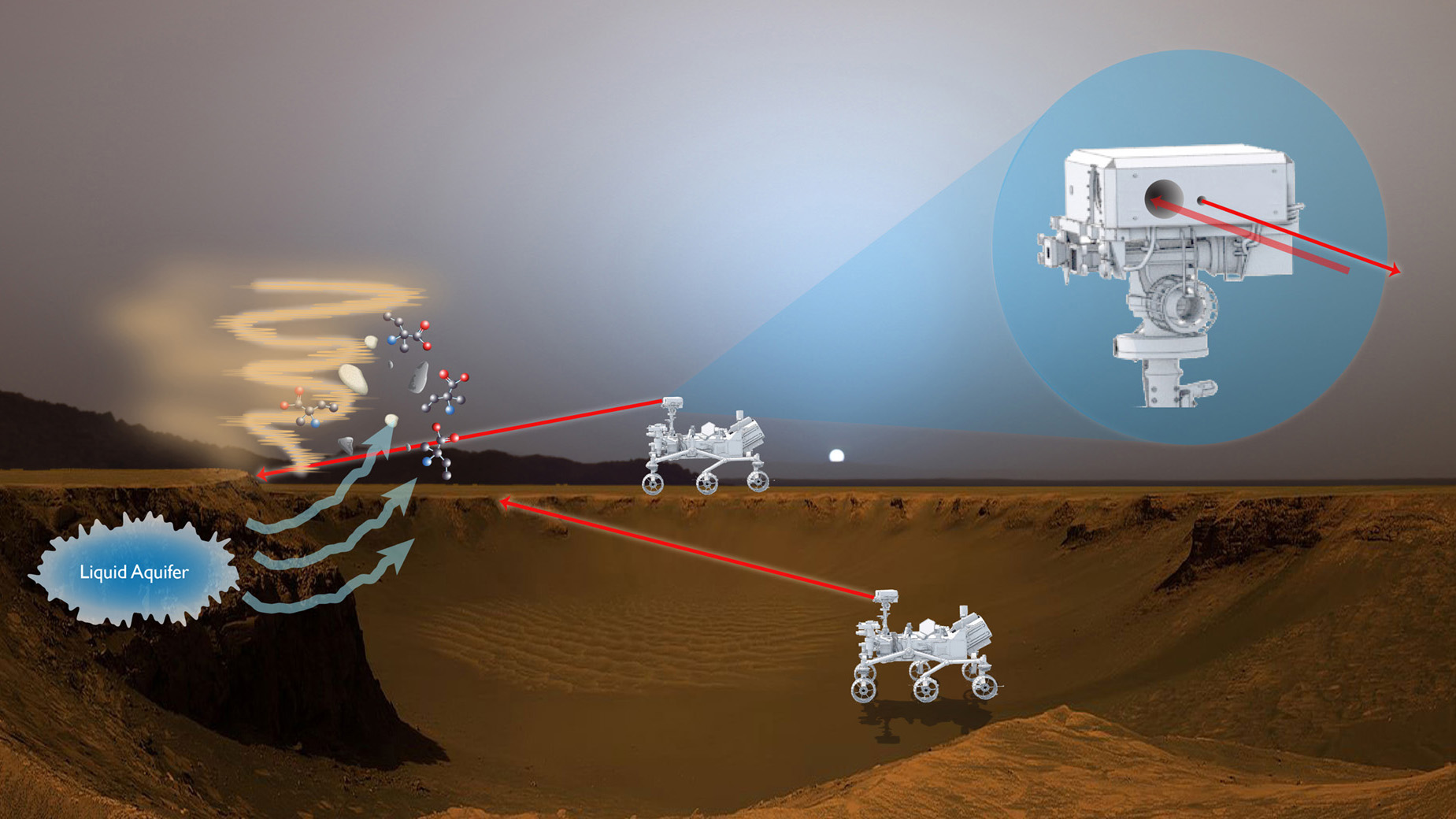A military poison gas detector could help find life on Mars
From biohazards to exobiology

For several years now, the US military has monitored the air in certain highly-populated locations for potentially life-threatening chemicals, toxins or pathogens released either by accident or as part of a terrorist attack.
That's no easy task. The automated sensors that do the scanning are highly complex, using lasers to analyse the composition of particles in the atmosphere. If a suspicious particle is detected, it triggers an alert and the authorities can respond accordingly.
Now, NASA technologists have shown that a similar system could be used to "sniff" for life on Mars or other parts of the solar system. In testing, they proved that it would be just as effective at detecting the organic biosignatures that herald life as it is at hunting down poison gases.
Positioned on the mast of a robotic rover, such a system could scan the terrain continuously, looking for dust plumes. When one is detected, the robot could pulse two ultraviolet lasers at the dust, causing the particles inside to fluoresce. By analysing that fluorescence, it would be possible to determine if the dust contained organic particles, as well as reveal their size.
“If the bio-signatures are there, it could be detected in the dust,” said Branimir Blagojevic, who has developed a prototype of the instrument.
Ready to Integrate
The strength of this system over other life-hunting procedures is that it can detect particles in real-time from a distance of several hundred meters, allowing samples to be collected in areas that a rover couldn't drive through and reducing the risk of contamination. It could also be installed on a spacecraft to probe other worlds in the solar system.
"This makes our instrument an excellent complementary organic-detection instrument, which we could use in tandem with more sensitive, point sensor-type mass spectrometers that can only measure a small amount of material at once,” said Blagojevic.
Get daily insight, inspiration and deals in your inbox
Sign up for breaking news, reviews, opinion, top tech deals, and more.
“We are ready to integrate and test this novel instrument, which would be capable of detecting a number of organic biosignatures,” he added.
“Our goal is increasing the likelihood of their discovery.”
